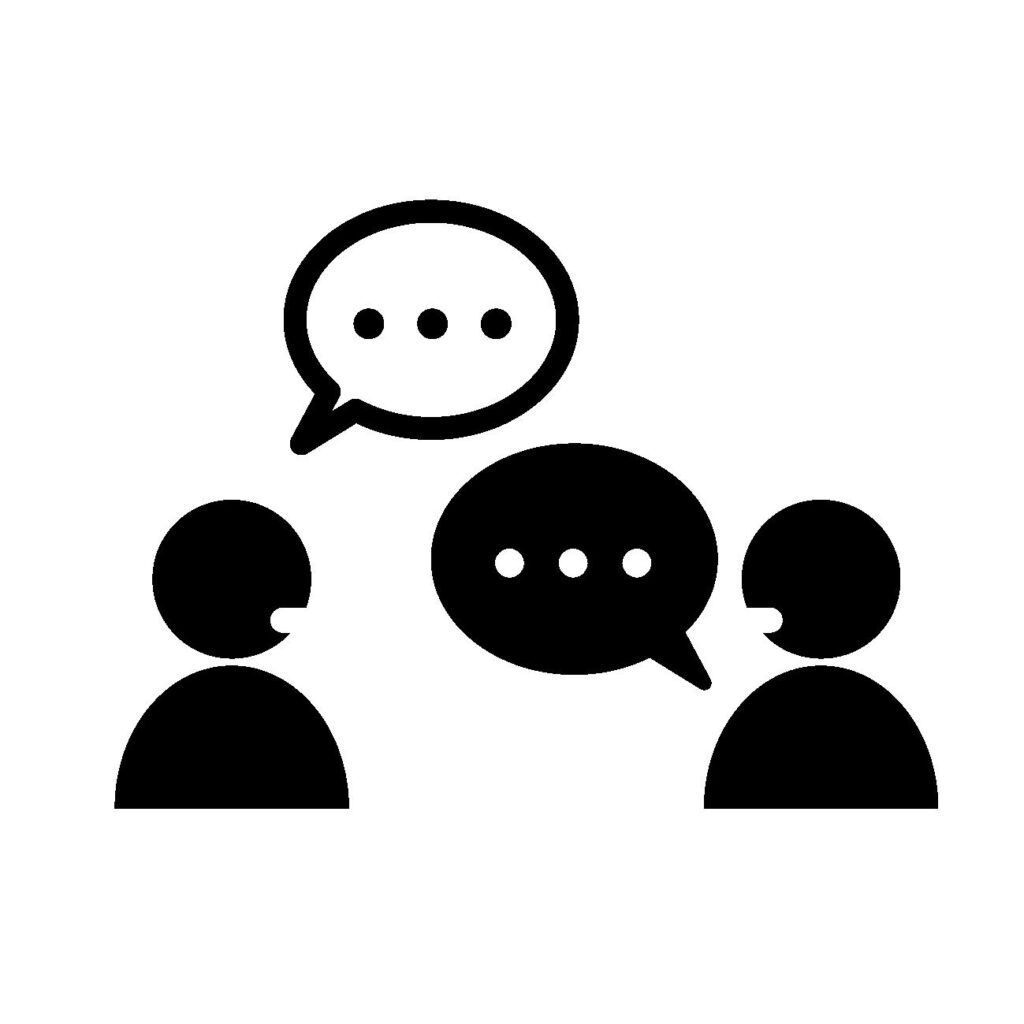・Conversation starter
・End of conversation
・Express emotions
・About myself
・Ask someone's availability
・Ask for something
・When you don't understand what the other person is saying
・Reply, Backtracking
Let's memorize words that are often used in daily conversation.
日常会話でよく使う言葉を覚えましょう。
Conversation starter
What are you doing now?
→「今何をしていますか?」
"ima naniwo shiteimasuka?"
How is it going?
→「調子はどうですか?」
"choushiwa doudesuka?"
I'm fine.
→「元気です」
"genkidesu"
It is busy.
→「忙しいです」
"isogashii desu"
I'm tired.
→「疲れてます」
"tsukaretemasu"
I'm sleepy.
→「眠いです」
"nemuidesu"
example sentence
"hello. How is it going?"
"I've been busy and tired lately."
「こんにちは。調子はどうですか?」
"konnichiwa. choushiwa doudesuka?"
「最近忙しくて疲れてます。」
"saikin isogashikute tsukarete masu"
End of conversation
I gotta go.
→「そろそろ行きます」
"sorosoro ikimasu"
Good bye.
→「さようなら」
"sayounara"
Nice talking to you.
→「話せてよかったです」
"hanasete yokattadesu"
See you again.
→「また会いましょう」
"mata aimasyou"
Take care.
→「お気をつけて」
"okiwo tsukete"
Express emotions
I like it.
→「好きです」
"sukidesu"
I hate.
→「嫌いです」
"kiraidesu"
It's fun.
→「楽しいです」
"tanoshii desu"
I'm happy.
→「嬉しいです」
"ureshii desu"
It's hard.
→「つらいです」
"tsurai desu"
I am sad.
→「悲しいです」
"kanashii desu"
About myself
I am an international student.
→「私は留学生です」
"watashiwa ryuugakusei desu"
I am from Nepal.
→「ネパールから来ました」
"nepa-ru kara kimashita"
It's been two months since I came to Japan.
→「日本に来て2か月です」
"nihon ni kite nikagetsu desu"
Ask someone’s availability
Do you have time now?
→「今お時間ありますか?」
"ima ojikan arimasuka?"
When is it convenient for you?
→「いつなら都合がいいですか?」
"itsunara tsugouga iidesuka?"
What time should it be?
→「何時ならいいですか?」
"nanjinara iidesuka?"
What are you doing tomorrow?
→「明日は何をしていますか?」
"ashitawa naniwo shiteimasuka?"
When will you finish work?
→「いつ仕事が終わりますか?」
"itsu shigotoga owatimasuka?"
Ask for something
Can you help me?
→「手伝ってもらえませんか?」
"tetsudatte moraemasennka?"
Please tell me the way.
→「道を教えてください」
"michiwo oshiete kudasai"
Can i go tomorrow?
→「明日行ってもいいですか?」
"ashita ittemo iidesuka?"
When you don’t understand what the other person is saying
Say that again, please.
→「もう一度お願いします」
"mouichido onegaishimasu"
Could you speak a little more slowly?
→「もう少しゆっくり話していただけますか?」
"mousukoshi yukkuri hanashite itadakemasuka?"
What does that word mean?
→「その言葉の意味はなんですか?」
"sono kotobano imiwa nanndesuka?"
I'm sorry, I don't understand.
→「すみません、わからないです」
"sumimasen wakaranai desu"
Reply, Backtracking
Yes, it is.
→「はい、そうです」
"hai, soudesu"
No, it's not.
→「いいえ、違います」
"iie, chigaimasu"
Understood.
→「わかりました」
"wakarimashita"
Sounds good.
→「いいですね」
"iidesune"
I hate it.
→「それは嫌です」
"sorewa iyadesu"
